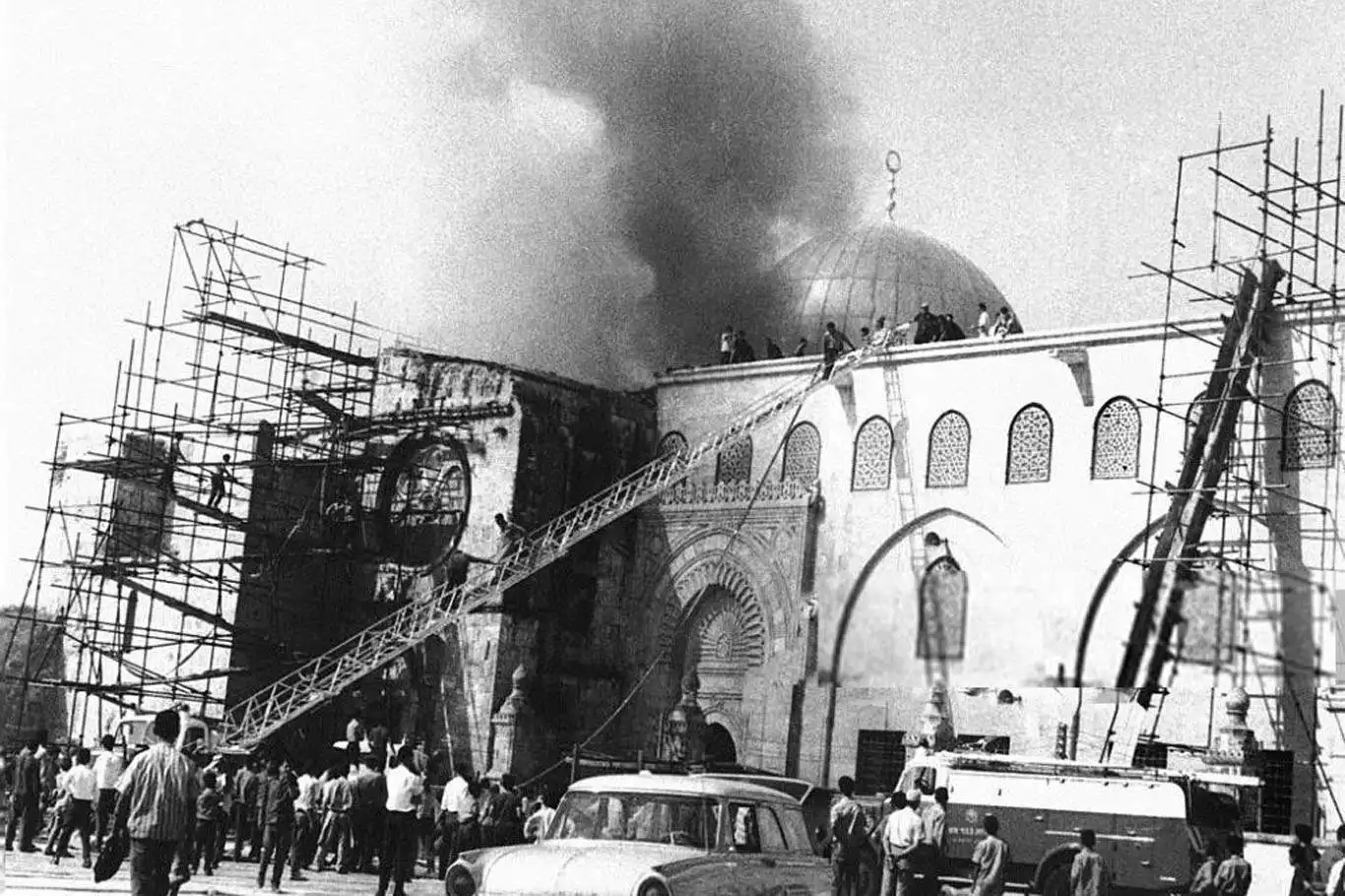55 years later: Al-Aqsa Mosque still under threat on arson attack anniversary


Today marks the 55th anniversary of the devastating arson attack on the Al-Aqsa Mosque, a significant and tragic event in the history of Jerusalem.
On August 21, 1969, Australian Jewish extremist Michael Dennis Rohan set fire to the mosque, causing extensive damage.
The fire, which severely damaged the mosque’s facades, ceilings, carpets, rare decorations, furniture, and copies of the Quran, destroyed more than a third of the mosque's 4,400 square meters. Key areas affected included the Omar Mosque, Zakaria’s Mihrab, the Mosque of the Forty Martyrs, and seventy-four wooden windows.
Despite the immediate damage, the real threat to Al-Aqsa continues today through ongoing Israeli occupation and settler violations. The Zionist forces cut the water supply to the mosque and barred firefighters from extinguishing the blaze, which contributed to the destruction of the 900-year-old pulpit gifted by Saladin.
The arson attack triggered widespread outrage and protests across the Muslim world, with thousands of Muslims performing Friday prayers in the mosque's courtyards the following day. However, the situation remains dire as Al-Aqsa continues to face systematic violations.
The Israeli authorities have been accused of perpetuating a series of violations against the mosque, including daily incursions by settlers, attempts to divide the mosque temporally and spatially, and deportation orders for Muslim worshippers. These actions are seen as part of a broader plan to tighten control over Al-Aqsa, change its Islamic character, and potentially replace it with a proposed "temple."
Fifty-three years after the attack, the mosque still faces significant threats. The ongoing Israeli policies and settlement expansion schemes continue to exacerbate tensions and are perceived as efforts to undermine the mosque’s historical and religious significance.
The 55th anniversary of the arson serves as a reminder of the persistent and escalating challenges faced by Al-Aqsa Mosque, amidst a backdrop of continued Israeli occupation and settlement activities. (ILKHA)
LEGAL WARNING: All rights of the published news, photos and videos are reserved by İlke Haber Ajansı Basın Yayın San. Trade A.Ş. Under no circumstances can all or part of the news, photos and videos be used without a written contract or subscription.
In the chronicles of Palestinian resistance, few names resonate as powerfully as that of Yahya Abd-al-Latif Ayyash, a man whose brilliance and sacrifice made him an enduring symbol of defiance against the Israeli occupation.
As the world marked World Children’s Rights Day on November 20th, a day that commemorates the adoption of the United Nations Convention on the Rights of the Child, the glaring silence of Western nations on the massacre of Palestinian children remains a tragedy that cannot be ignored.
The martyrdom of Hamas leader Yahya Sinwar, announced on Friday, marks a significant moment in the ongoing Palestinian resistance against the Israeli occupation.
More than a year after the Al-Aqsa Flood operation and the relentless onslaught by Israel in Gaza, Yahya Sinwar, the leader of Hamas, achieved martyrdom while courageously engaging Israeli occupation forces on the front lines in Rafah, southern Gaza.